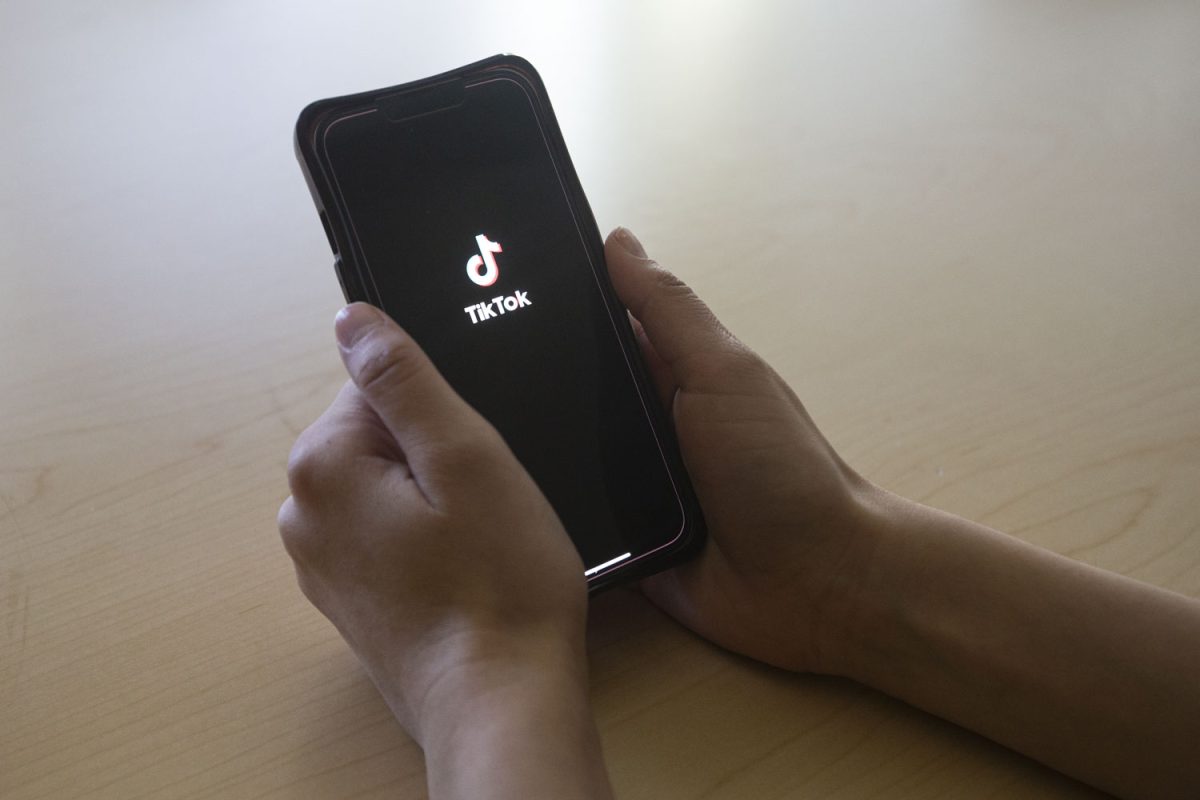Many University of Iowa students could lose their favorite form of procrastination: TikTok.
While the app remains a top social media platform on college campuses, American lawmakers are considering legislation that would lead to a countrywide ban due to national security concerns. The legislation passed in the U.S. House on March 13.
William “Billy” Stoynoff, a UI student and TikTok content creator who went viral in the fall while documenting his experience on the app as a 33-year-old UI transfer student, said the ban is not a good idea because TikTok has become a source of income for many creators, especially for many small businesses.
“I make exactly zero dollars from the app,” he said, noting he isn’t worried about his own account which has nearly 8,000 followers. “I could make money if I started promoting products from the TikTok shop but that’s not really what I’m about, and my page isn’t large enough to get paid per view.”
The bill would require TikTok’s China-based owner ByteDance to sell their part of the company to an American entity to prevent the nationwide ban. The bill is headed to the U.S. Senate, which will determine the future of TikTok.
TikTok has been restricted on government devices across the country in the last two years. Gov. Kim Reynolds announced a ban on state-owned devices in 2022, and the UI complied, removing TikTok from university-owned devices.
Some students are against the national ban due to the app’s promotion of creativity. Tatum Buckley, a UI first-year student, is against the ban and wants TikTok to stay accessible in the U.S.
“TikTok is a source of income for many people as well as a source of creativity where people can make and share content they are passionate about,” Buckley said.
UI first-year student Caleb Gardner had a similar stance on the effect TikTok has had on its content creators. Gardnersaid the platform gives both big and small corporations the reach to connect with audiences. He also said the platform was a source of income for many content creators.
Connor Boyd, who is also a UI first-year student, said TikTok is one of the more positive social media platforms that has provided great opportunities for many individuals.
However, UI second-year student Caleb Killing-Matthews said he is in favor of the ban.
“I think foreign and heavy political influences are undetectable as it currently stands, and we don’t know how and why the algorithm works to promote certain values and cultural ideas,” Killing-Matthews said.
Killing-Matthews said banning TikTok won’t get rid of the form of content. However, the ban will help with user data security and create a more transparent and stronger atmosphere for dialogue.
Even if the ban does not occur, the controversy surrounding the event will open the dialogue for stronger restrictions on both TikTok and other apps like Instagram and Facebook, Killing-Matthews said.
UI Journalism and Mass Communications professor Brian Ekdale said there is still a lot of unknown about what will happen to ByteDance if the bill is passed.
RELATED: UI enforces TikTok ban at administrative level
Ekdale said there are legitimate concerns about the Chinese government’s access to user data, political influence, and content distribution.
“We should take seriously concerns raised by security personnel like FBI Director Christopher Wray,” Ekdale said.
In the TikTok briefing on March 11, Wray brought up issues concerning the ownership of TikTok and the potential communist ties it might have and how that control puts at risk Americans and their data.
Ekdale said he would like to see the conversation broaden to other platforms that might be misusing user data.
”When elected officials talk about concerns about TikTok and mental health among young people, it would be helpful to broaden the conversation to include other American-owned platforms that raise similar concerns,” Ekdale said.



